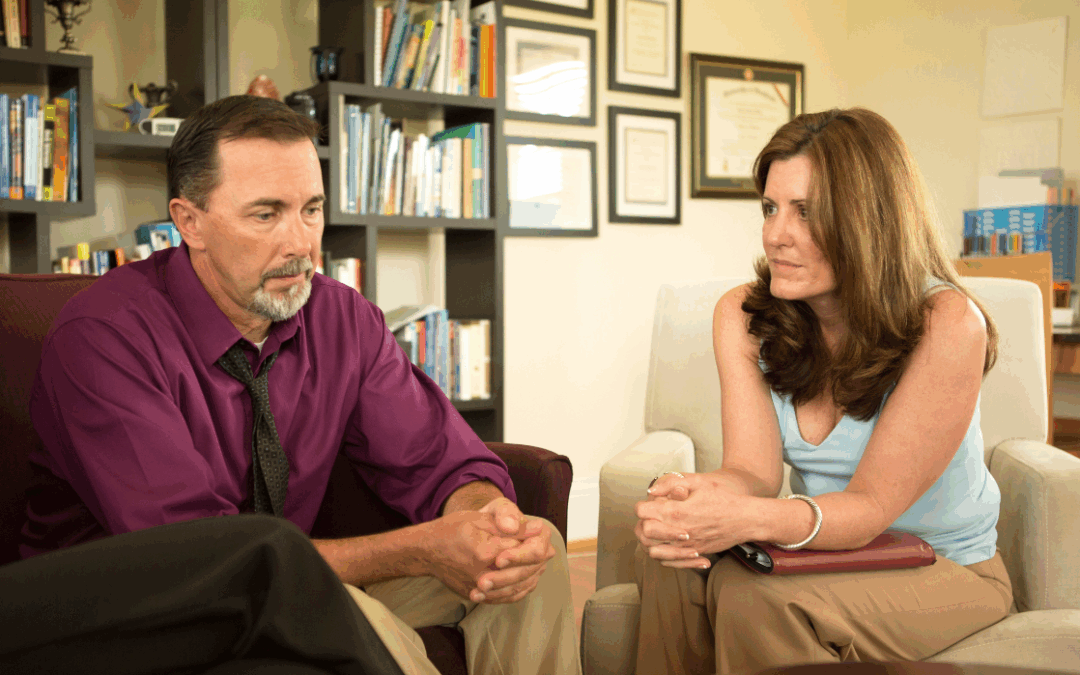
Parenting Burnout Signs & Recovery | Maplewood Counseling
Parenting Burnout: Why You Feel Like You’re Failing (And Why You Aren’t)

By Debra Feinberg, LCSW, Robert Jenkins, LCSW (Reviewed by Senior Level Therapists)
Do you wake up dreading the day before it even starts? Do small requests from your children trigger a disproportionate wave of irritation or tears? Perhaps you find yourself fantasizing about getting in the car and driving away—not forever, but just long enough to remember what silence sounds like.
If this sounds familiar, you aren’t just “tired.” You might be experiencing parenting burnout.
In a culture that glorifies the “super-parent”—the one who juggles a career, extracurriculars, organic meal prep, and gentle parenting with a smile—admitting you are exhausted can feel like a confession of failure. But here is the truth: Parenting is relentless work. It is a job with no sick days, no paid time off, and very little immediate gratification.
Feeling depleted doesn’t mean you don’t love your children. It means you are a human being running on empty. At Maplewood Counseling, we support incredible, loving parents every day who are simply burned out—just like you may be feeling now. If you’re searching for encouragement, tools, or next steps, you’ll find additional resources on parenting support and family counseling services right here on our site. Let’s talk about why burnout happens and, more importantly, how to find your way back to yourself.
The Silent Epidemic of Parental Burnout
Parental burnout is a state of intense physical, mental, and emotional exhaustion related to your role as a caregiver. It differs from general stress because it includes a sense of detachment from your children and a feeling of ineffectiveness. You might feel like you’re just going through the motions, acting the part of a parent without feeling the connection.
The “Perfect Parent” Trap
We live in an information age where advice is everywhere. While helpful, the constant stream of “shoulds”—you should limit screen time, you should validate every emotion, you should teach coding by age three—creates an impossible standard. The pressure to optimize every aspect of a child’s life leaves parents constantly feeling like they are falling short.
The Loss of the “Village”
The old adage “it takes a village” is true, yet modern parenting is increasingly isolated. Many families live far from relatives, and the cost of childcare can make regular breaks impossible. When the entire burden of raising humans falls on one or two people, the system is designed to break.
The Sensory Overload
Parenting is a sensory endurance sport. The noise of cartoons, the constant “Mom! Dad!”, the physical touch of a clingy toddler, the mental load of remembering appointments—it creates a state of chronic overstimulation. When your nervous system is constantly in “fight or flight” mode, burnout is the natural result.
Signs You Are Running on Empty
Burnout manifests differently for everyone, but there are common red flags. Recognizing them is the first step toward healing.
- Emotional Distancing: Do you feel like you are on autopilot? You might be physically present with your kids but emotionally miles away, unable to engage in play or conversation.
- Irritability and Rage: Do you snap at your partner or kids over minor things? “Parental rage” is a common symptom of burnout, often followed by intense guilt.
- Loss of Pleasure: Do the things you used to enjoy—hobbies, time with friends, or even just a quiet cup of coffee—feel like chores or just “one more thing to do”?
- Physical Exhaustion: No matter how much you sleep, do you still feel deep-in-your-bones tired? You might also experience headaches, stomach issues, or frequent illnesses.
Reclaiming Your Spark: Actionable Steps to Heal
Healing from burnout isn’t about taking a bubble bath (though that’s nice). It’s about structural change and radical self-compassion.
1. Drop the “Glass Balls” vs. “Plastic Balls”
Imagine the tasks of parenting as balls you are juggling. Some are glass (if you drop them, they shatter—like feeding your kids or giving them love). Others are plastic (if you drop them, they bounce—like a tidy house, homemade costumes, or limiting screen time).
Action Step: Identify three “plastic balls” you are currently holding and drop them. Order pizza. Let the laundry pile up. Allow extra iPad time so you can rest. The world will not end.
2. Micro-Restoration for Your Nervous System
You may not have time for a weekend retreat, but you have time to reset your nervous system.
Action Step: Practice “grounding” daily. When you feel the rage or panic rising, stop. Feel your feet on the floor. Name three things you can see, two things you can touch, and one thing you can hear. This pulls your brain out of survival mode and back into the present.
3. Redefine “Self-Care” as “Needs-Care”
Self-care has been marketed as a luxury. It is not. It is basic maintenance. You cannot pour from an empty cup.
Action Step: Ask yourself, “What is my biggest physiological need right now?” Is it sleep? Food? Silence? Adult conversation? Prioritize meeting that need as if it were a medical prescription. Communicate this to your partner or support system: “I need 20 minutes of silence to function.”
4. Break the Isolation
Shame thrives in secrecy. The more you hide your burnout, the more isolated you feel.
Action Step: Be honest with a safe friend or your partner. Say the words, “I am struggling.” You will likely find that they are, too. Vulnerability builds the village you are missing.
When to Seek Professional Support
Sometimes, burnout evolves into depression or anxiety. If your feelings of detachment are persistent, if you feel hopeless, or if you are having thoughts of harming yourself or your children, professional help is essential.
Therapy provides a judgment-free space to unpack the heavy load you are carrying. We can help you:
- Identify the root causes of your burnout.
- Set boundaries that protect your energy.
- Process the guilt and shame of “not being enough.”
- Develop coping strategies that actually work for your life.
You deserve to enjoy your life, not just endure it. Your children need a happy parent more than they need a perfect one.
Frequently Asked Questions (FAQs)
Is parental burnout the same as depression?
They share symptoms, like exhaustion and detachment, but they are different. Burnout is specifically context-dependent—it is related to your role as a parent. However, untreated burnout can lead to clinical depression. A therapist can help distinguish between the two and provide the right treatment. Learn more about parenting burnout FAQs.
I feel guilty taking time for myself when I work all day. How do I get past this?
Guilt is a sign that you care, but it is also a liar. Reframing is key: You are not taking time away from your family; you are investing in your ability to care for them. A rested, regulated parent is a better parent. You are modeling healthy boundaries for your children.
My partner doesn’t understand why I’m so tired. What can I do?
This is a common conflict. Often, the “mental load” (the invisible planning and worrying) is invisible to partners. Try writing down the invisible tasks you manage daily. Share resources on parental burnout with them. Couples counseling can also bridge this gap in understanding.
Can single parents recover from burnout without a partner to help?
Absolutely, though the challenges are unique. For single parents, building a support network is critical. This might look like trading childcare with another single parent, utilizing community resources, or simplifying lifestyle expectations to conserve energy.









